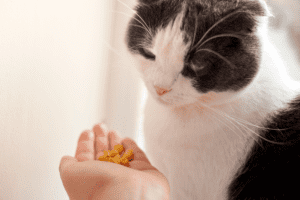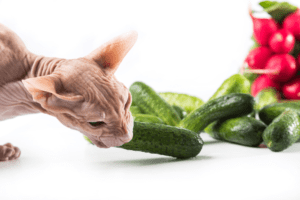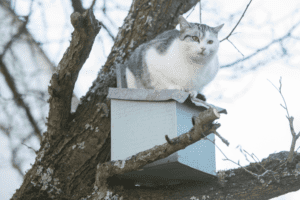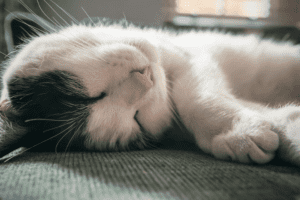Cats are obligate carnivores, which means that they require animal protein to survive. This doesn’t mean that cats can’t eat other things, but it does mean that they should not be fed a diet that is made up only of plant-based foods. Chocolate is a food that many people think is harmful to cats, but can cats eat chocolate?
After all, it’s one of our favorite snacks! But is it safe for cats? Let’s take a closer look at the question of whether can cats eat chocolate and find out what the experts say.
Table of Contents
Is Chocolate Bad for Cats?
While chocolate is a delicious treat for humans, it can be very dangerous for cats. Chocolate contains a substance called theobromine,which is toxic to cats.The amount of theobromine in chocolate varies depending on the type of chocolate, but all types of chocolate can be harmful to cats.
This substance is similar to caffeine and can cause serious health problems for cats, including heart problems, seizures, and even death. Therefore, it is important to keep chocolate away from cats.
it’s not only chocolate that can be harmful to cats – other candy and baked goods can contain ingredients like raisins and grapes that can be toxic to felines. So if you’re sharing treats with your kitty, be sure to stick with cat-safe snacks.
Why is chocolate bad for cats?

- Chocolate can cause digestive problems in cats
- Chocolate can cause weight gain in cats
- Chocolate can cause vomiting and diarrhea in cats.
- Chocolate may also lead to serious health problems in cats, such as heart attacks and seizures.
As you can see, there are a few reasons why chocolate is bad for cats. If you’re looking for a treat to give your feline friend, steer clear of chocolate and opt for something else instead.
Chocolate Toxicity Levels in Cats
There are different levels of toxicity when it comes to chocolate and cats and its helpful to understand that Can Cat Eat Chocolate? The severity of the toxicity will depend on the type of chocolate, as well as the amount consumed.
The following is a list of chocolate toxicity levels in cats:
- Dark chocolate: This is the most dangerous type of chocolate for cats. Even a small amount can cause vomiting and diarrhea, as well as an increased heart rate. If consumed in large quantities, dark chocolate can lead to seizures and even death.
- Milk chocolate: While not as dangerous as dark chocolate, milk chocolate can still cause gastrointestinal upset in cats. Consuming large amounts can lead to pancreatitis, which is a serious condition that can be fatal.
- White chocolate: This type of chocolate is the least toxic to cats, but it can still cause stomach upset. Eating too much white chocolate can lead to diarrhea and vomiting.
Symptoms of chocolate poisoning in cats
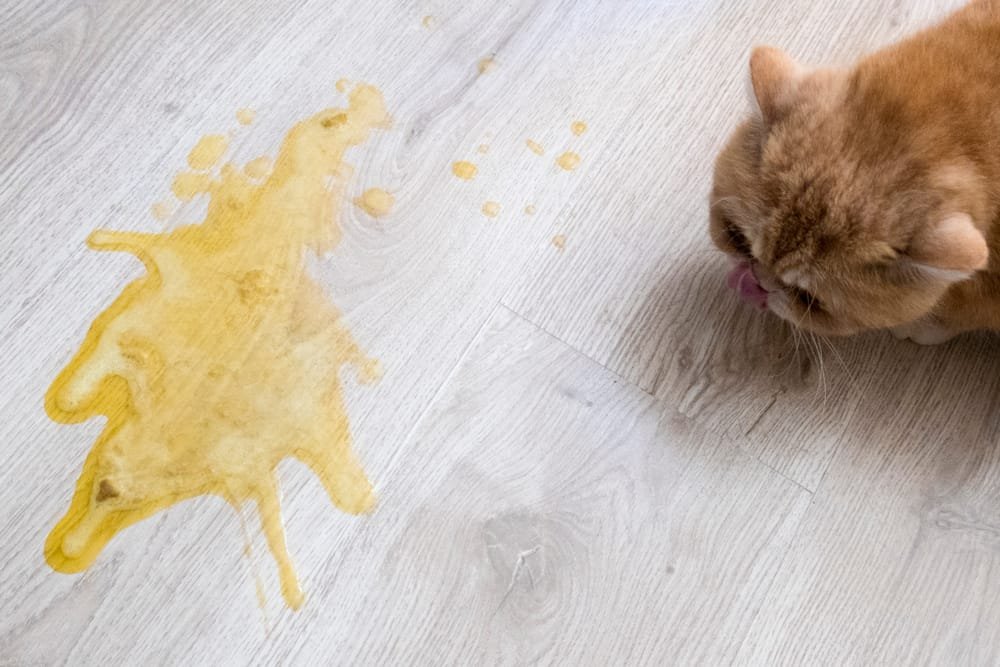
Following are the symptoms of chocolate poisoning in cats:
Vomiting
Vomiting is the act of expelling the contents of the stomach through the mouth. It can be caused by a number of things, including gastrointestinal problems, infections, toxins, and parasites.
Diarrhea
Diarrhea is the increased frequency, fluidity, or volume of bowel movements. It can be caused by a number of things, including infections, allergies, and intolerance to certain foods.
Abdominal pain
One of the most common symptoms of chocolate poisoning in cats is abdominal pain. This can be caused by the toxin methylxanthines, which are found in chocolate.
Increased thirst
Increased thirst is one of the most common symptoms of chocolate poisoning it can be caused by the toxin methylxanthines, which are found in chocolate.
Increased urination
Increased urination in cats is a symptom of chocolate poisoning. It is caused by theobromine, which is found in chocolate.
Hyperactivity
Hyperactivity is a condition where a cat has too much energy. They may become restless and difficult to handle.
Seizures
A seizure is a sudden, uncontrolled burst of electrical activity in the brain. Seizures can cause a range of symptoms, depending on what part of the brain is involved. In cats, seizures may cause:
- Jerking and twitching movements
- Loss of consciousness
- Peeing and pooping on themselves
- Foaming at the mouth
- Salivating excessively
Tremors
Tremors are uncontrolled, rhythmic movements of a muscle or group of muscles. They can be mild or severe, and may affect one part of the body or multiple parts In cats, tremors may be caused by:
Abnormal heart rhythms
Chocolate poisoning in cats can cause abnormal heart rhythms. This is a serious condition that can be life-threatening.
Heightened temperature
Cats have a high body temperature compared to other animals. Chocolate contains a compound called theobromine can cause their body temperature to rise to dangerous levels.
These symptoms can occur within 6-12 hours after a cat has ingested chocolate. If you suspect that your cat has eaten chocolate, contact your veterinarian immediately. Chocolate poisoning is a serious condition and can be fatal if not treated promptly.
What to do if your cat ate chocolate
If you think your cat has eaten chocolate,
First Thing you should do is keep an eye on your cat for any signs of chocolate poisoning, such as vomiting, diarrhea, tremors, or seizures. If you see any of these symptoms, contact your veterinarian immediately.
Second thing you should do is call your veterinarian. If possible, bring a sample of the chocolate with you to the appointment. Your vet will likely want to induce vomiting and give your cat IV fluids to flush the chocolate out of their system. Treatment will be based on how much chocolate your cat ate and how long ago they ate it. In some cases, hospitalization may be necessary.
Do not try to make your cat vomit at home. This can be very dangerous and should only be done under the guidance of a veterinarian.
Treatment of Chocolate Toxicity in Cats
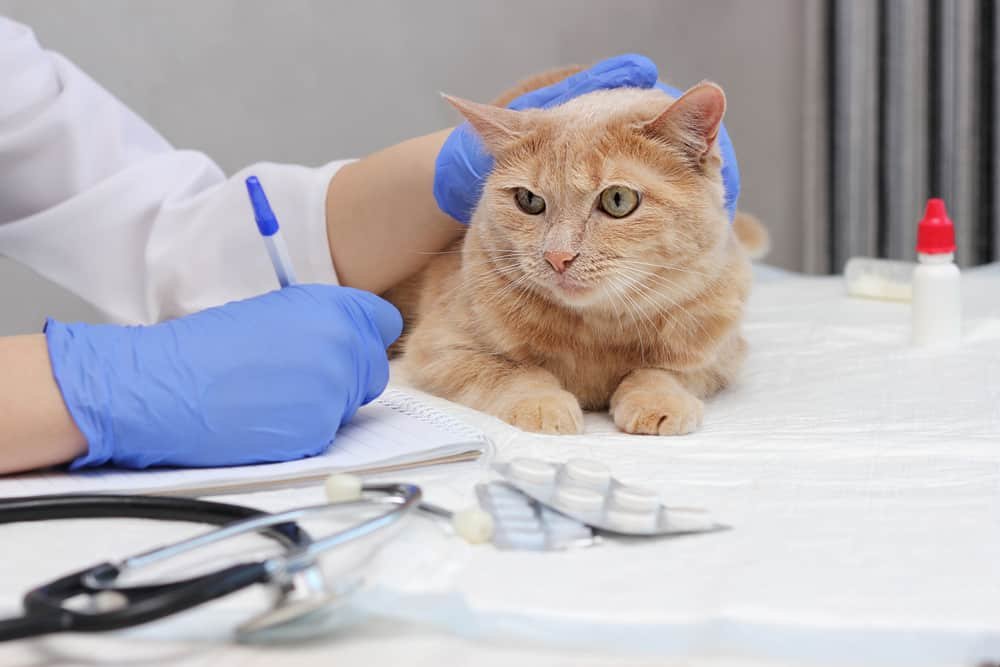
If your cat is at risk for chocolate poisoning, it’s important to know the symptoms and seek treatment immediately.
Firstly, your veterinarian may induce vomiting if your cat has consumed chocolate within the last two hours. In more severe cases, your vet may give your cat IV fluids to flush out the system and prevent dehydration.
An ECG may also be performed to check for abnormal heart rhythms, and bloodwork may be taken to assess organ function. If your cat has consumed a large amount of chocolate or has been poisoned for an extended period of time, they may need to be hospitalized for intensive treatment.
If your cat is showing signs of neurological toxicity, such as tremors or seizures, they will be given medication to control these symptoms. The good news is that most cats make a full recovery with prompt treatment. However, chocolate poisoning can be fatal if left untreated, so it’s important to be aware of the symptoms and seek medical help right away if you think your cat has consumed chocolate.
Alternatives to chocolate for cats
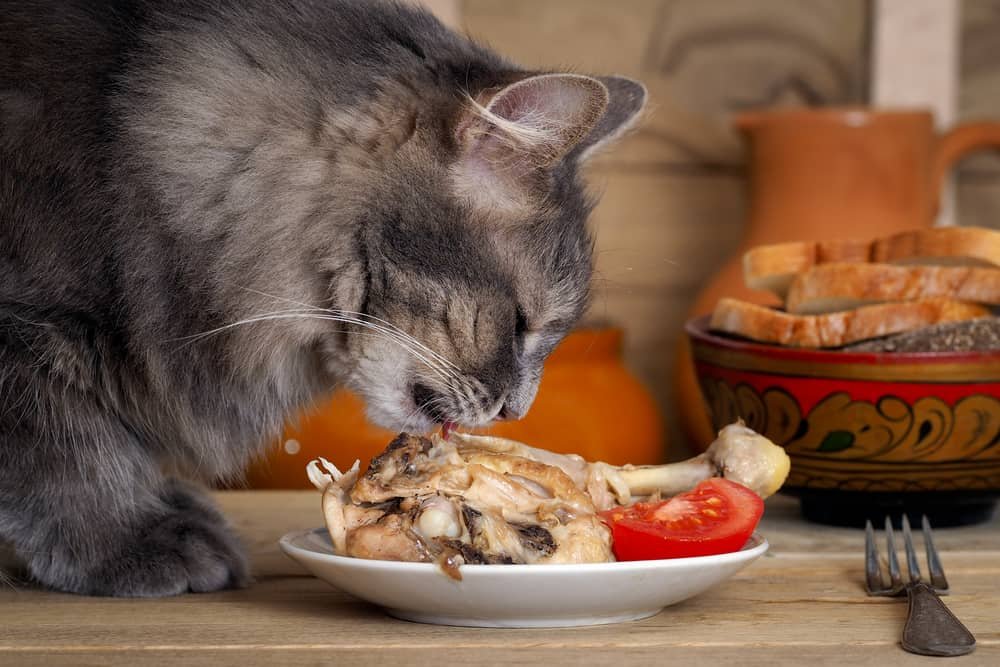
There are many alternative treats that you can give your cat that are just as delicious and will not put their health at risk.
Some great options include:
Cooked chicken or turkey
Cooked chicken or turkey is a good source of protein for cats and it’s also a healthy choice. It’s low in fat and calories, and it contains essential nutrients that cats need including vitamin B12, niacin, and pantothenic acid.
Cheese
Cheese is a dairy product made from milk that is curdled and pressed. It is a common ingredient in many dishes, and is also enjoyed on its own as a snack. Cheese is high in protein and calcium, and has been shown to have beneficial effects on the health of cats.
Plain yogurt
Plain yogurt is a dairy product that is made by culturing milk with bacteria. This process produces lactic acid, which thickens the milk and gives it a sour taste.
Many people believe that plain yogurt can be healthy for cats. This is because yogurt contains probiotics, which are beneficial bacteria that help to support gut health. Probiotics can help to keep the digestive system functioning properly and may also help to reduce the risk of infection.
Catnip toys or treats
Catnip, also known as catmint, is a herb that is related to the mint family. It is a member of the genus Nepeta and is thought to contain a compound called nepetalactone, which is responsible for its effects on cats.
When cats smell catnip, it causes them to become excited. They may start to purr or even drool. Some cats will roll around in it or eat it. The effects of catnip usually last for about 10 minutes.
Many people believe that catnip can be healthy for cats. This is because catnip contains nepetalactone, which is thought to have a number of beneficial effects on cats. For example, nepetalactone may help to reduce stress and anxiety levels in cats. It may also help to improve cognitive function and memory.
What Other Foods Should I Avoid Feeding My Cat?
Canned tuna
Canned tuna is a type of fish that is often used as a cat food. It is high in protein and omega-3 fatty acids, which are important for cats. However, canned tuna can also be high in mercury. Mercury is a toxic element that can cause health problems in both humans and animals.
For this reason, it is important to only feed your cat canned tuna occasionally, and to avoid brands that are high in mercury.
Onions and garlic
Onions and garlic are two types of vegetables that are commonly used in cooking. They have a strong flavor and can add a lot of taste to a dish. However, onions and garlic can also be toxic to cats. They can cause anemia and other health problems.
Raw eggs
Raw eggs are a type of food that is often fed to cats. They are a good source of protein and other nutrients. However, raw eggs can also contain bacteria that can cause food poisoning. They can also contain Salmonella, which is a type of bacteria that can cause severe illness in both humans and animals.
Milk and dairy products
Many cats enjoy drinking milk and eating dairy products. However, some cats are lactose intolerant, which means that they cannot digest lactose, the sugar found in milk and dairy products.
Lactose intolerance can cause stomach upset, diarrhea, and other health problems. For this reason, it is important to avoid feeding your cat milk or dairy products if they are lactose intolerant.
Sugar
Sugar is a type of carbohydrate that is found in many foods. Cats do not need sugar in their diet, and it can actually be harmful to them. Too much sugar can lead to obesity and other health problems.
Coffee and tea
Coffee and tea are two types of beverages that contain caffeine. Caffeine is a stimulant that can be harmful to cats. Caffeine can cause restlessness, increased heart rate, and other health problems.
Grapes and raisins
Grapes and raisins are two types of fruits that are often used in baking and cooking. They are a good source of vitamins and minerals. However, grapes and raisins can be toxic to cats. They can cause kidney problems and other health problems.
Peanut butter
Peanut butter is a type of food that is often used as a spread or as a ingredient in recipes. It is high in protein and healthy fats. However, peanut butter can also be dangerous for cats. It can contain aflatoxins, which are toxins that can cause liver damage.


